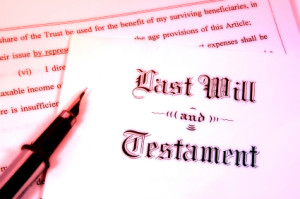 Today’s top story: Capital One faces major backlash against home visit policy. Also in the news: Retirement strategies for the self-employed, how to choose between a will and a trust, a how your taxes could affect your chances of buying a home.
Today’s top story: Capital One faces major backlash against home visit policy. Also in the news: Retirement strategies for the self-employed, how to choose between a will and a trust, a how your taxes could affect your chances of buying a home.
Capital One policy about home visits causes backlash
Customers aren’t thrilled with the idea of Capital One literally knocking on their doors.
Retirement Strategies for the Self-Employed
The best ways to build your retirement nest egg.
Wills vs. Trusts: What’s Best For Retirees?
Important differences to consider.
How Your Taxes Could Hurt Your Homebuying Chances
Saving money on taxes could increase the cost of a future home.
Double Trouble: Being an Identity Theft Victim Can Land You in Jail
Adding insult to injury.
